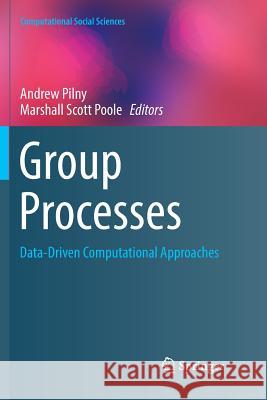Group Processes: Data-Driven Computational Approaches » książka
topmenu
Group Processes: Data-Driven Computational Approaches
ISBN-13: 9783319840536 / Angielski / Miękka / 2018 / 206 str.
Kategorie:
Kategorie BISAC:
Wydawca:
Springer
Seria wydawnicza:
Język:
Angielski
ISBN-13:
9783319840536
Rok wydania:
2018
Wydanie:
Softcover Repri
Ilość stron:
206
Waga:
0.30 kg
Wymiary:
23.39 x 15.6 x 1.14
Oprawa:
Miękka
Wolumenów:
01
Dodatkowe informacje:
Wydanie ilustrowane











